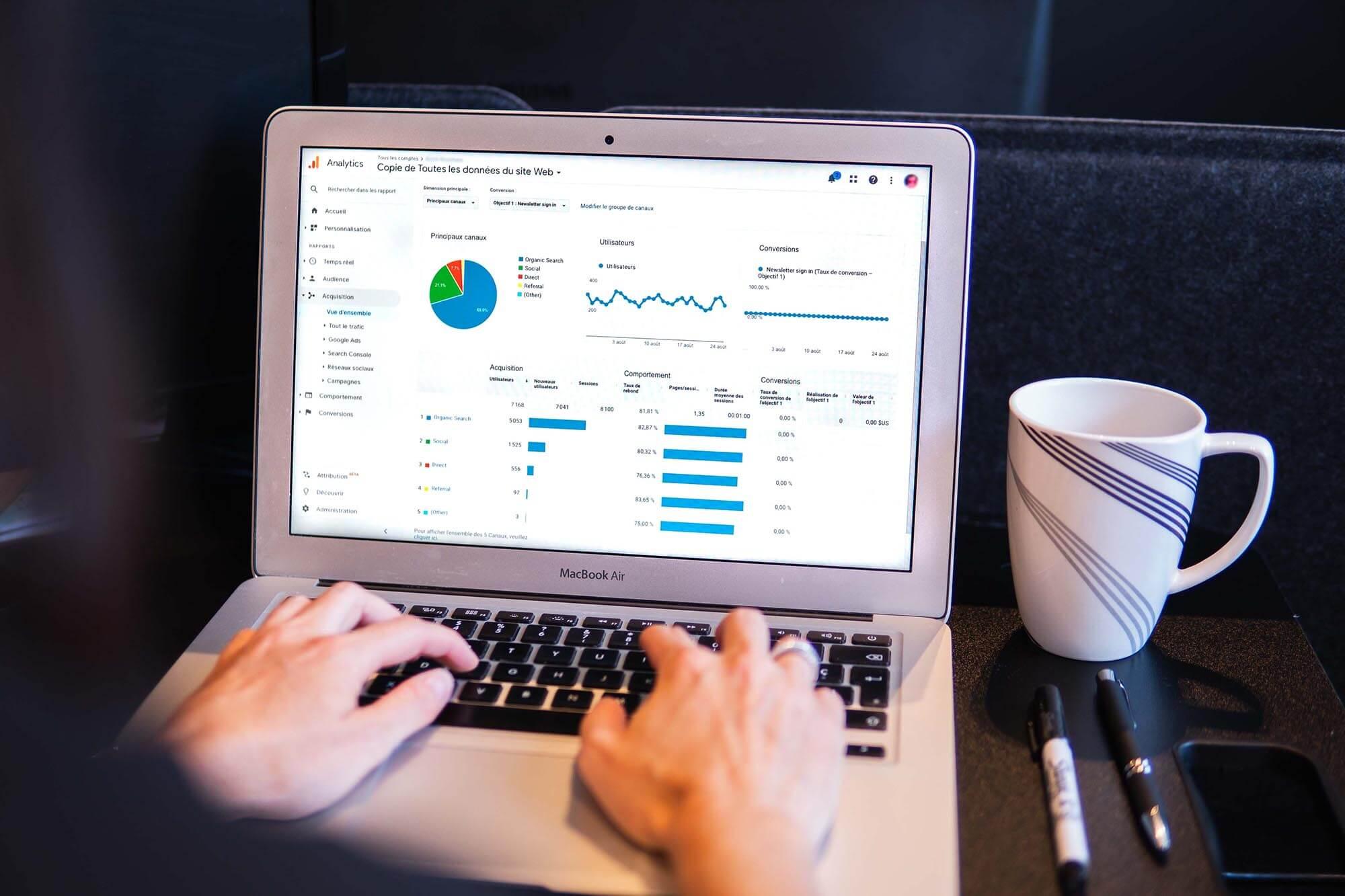How to Improve eCommerce Conversion Rates

Conversion is an essential metric for an ecommerce business. It refers to a desired action performed by a website visitor. Generally, an ecommerce store considers a sale as a conversion.
However, gathering leads or encouraging website visitors to join an emailing list can also be conversions.
Businesses can undertake several steps to improve ecommerce conversion rates. It can range from analyzing your current conversions and optimizing multiple aspects to land more sales.
In this blog, we will explore ways to improve your ecommerce conversion. But first, let’s explore the necessity of improving the conversion rate and the ideal rate for ecommerce.
Importance of Optimizing eCommerce Site Conversion Rates

Not many online shoppers hit the “buy” button on your ecommerce website. Your website might be slow to load or lack essential information discouraging sales.
As a result, the ecommerce industry has a bounce rate of 55.63%. Basically, that means more shoppers leave your site than become your paying customers.
Optimizing your conversion rate results in increased conversions. Additionally, it has several advantages for the business, such as:
More ecommerce sales and revenues resulting from higher conversions
A competitive advantage in the market
Higher returns from ad and marketing campaigns
More market share and growth
Better customer experience and brand credibility
Most importantly, businesses can turn more visitors into customers without investing in ads. You also don’t need to invest in SEO to attract more traffic from search engines.
What is the Ideal Conversion for an eCommerce Store?
The average conversion rate of the ecommerce industry is 1% to 4%. The average conversion rate in the United States is 2.57%.
Therefore, the ideal conversion rate for an online store is 2% to 3%.
Conversion rates may vary based on your product. For example, expensive and luxurious items sell less frequently.
In comparison, fast moving consumer goods (FMCG) products sell far more often.
Keep these factors in mind before you calculate your ideal conversion rate.
Steps to Optimize eCommerce Conversion Rates
You can undertake several steps to boost conversions. It starts with an audit of your current state of affairs and ongoing efforts to maintain a healthy conversion rate.
Below are a few steps to boost your ecommerce conversion rate:
Analyze Current Conversion Performance
The first step of conversion rate optimization is to evaluate your current performance. It will give you an idea of the areas to address in your efforts.
Here is what to do:
Examine your conversions, such as product conversion rate and conversion rates by traffic source
Compare them against industry benchmarks
Identify areas with low conversions
Evaluate Your Customer Journey
Analyze your buyer journey to find out bottlenecks in the process. You should:
Map the entire customer journey
Determines barriers that create friction
Examine each step of your customer journey (discover, browsing, adding to cart, and so on)
Gain Insight into User Behavior
Analytics tools like Adobe or Google Analytics can reveal further about your buyer journey. Use the tools to:
Analyze metrics like bounce rates, exit pages, and average session duration
Use the data to understand how users interact with your website
Rely on behavior flow analysis or conversion funnels to identify where users leave
This step allows you to gauge the challenges and opportunities you can capitalize on.
Optimize Website Design and User Experience
Follow the steps below to enhance your website navigation and ease of use:
Streamline website elements to offer an intuitive and user-friendly experience
Incorporate a site-wide search feature
Simplify your menu structures
Optimize website loading speed
Make products pages load faster
Optimize Product Pages
Work on your product pages to offer a smooth browsing experience. Try the steps below:
Use high-quality images capturing products from all angles
Invest in persuasive copywriting
Highlight the unique value proposition of each product
Use clear call-to-action
Incorporate testimonials and social proof to build trust
Implement a Responsive Design
Many shoppers shop online through smartphones. And it’s why you need to optimize your site across device sizes to boost user experience.
Adopt a responsive design approach that makes your site work seamlessly across devices and screen sizes. Your content will look optimal and adapt to the device, whether mobile, tablet, desktop, or smartwatch.
A responsive design improves usability to convert more visitors.
Here is what you can do:
Adopt a responsive site design
Ensure your store works perfectly across screens
Use easy-to-tap buttons and legible text
Simplify the checkout process for mobile users
Test your site on various mobile devices and browsers
Mobile optimization builds a positive and engaging environment for mobile users, encouraging more conversions.
Streamline Your Checkouts
A simple checkout process can boost ecommerce conversion and reduce abandoned carts. The techniques below can help you simplify your checkout:
Minimize steps required to make a purchase
Implement a progress indicator
Streamline the form fields
Ask for only essential information
Offer Guest Checkouts
Many potential customers abandon carts when they have to create an account on the checkout page. For this reason, offering guest checkouts can increase convenience and result in more sales.
Make it clear to online shoppers that registering is optional. However, show them the benefits of an account, like exclusive offers.
Build Trust
Building trust is essential for an ecommerce site. Here are a few tips to help you out:
Display trust badges
Show your security features like TLS certificates
Provide a range of secure and trusted payment options
Display your compliance certificates like PCI compliance
Trust signals assure users of their personal data and banking information security. Moreover, a simple checkout creates a frictionless buying experience.
Enhance Product Descriptions and Images

It is necessary to personalize your product descriptions for your target audience. Significantly, it can bring you an ROI of up to $20 on every dollar spent.
Here are a few techniques to try:
Write compelling and concise product descriptions
Highlight the features and benefits of your products
Explain how they solve customer needs
Offer promotions and discounts
Additionally, invest in professional product photography. Images should capture the actual color, appearance, and texture of products.
Adding videos to demonstrate product functions is another excellent idea. Significantly, videos build engagement and provide a real feel of checking out the item, even while shopping online.
Moreover, show customer reviews to convey positive experiences of using your products. Encourage customers to leave reviews by sending follow-up emails and incentives.
You can also build credibility by using social proof, like an endorsement from influencers. Build an informative and immersive product experience to boost ecommerce conversions.
Enhance Product Recommendations and Personalization
Personalization and accurate product recommendations create a tailored and persuasive shopping experience.
You can:
Personalize recommendations using insights from user interactions, browsing history, and purchase patterns
Implement recommendation algorithms to suggest relevant products
Deliver recommendations via web pages and targeted email campaigns
Upsell and Cross-Sell
Data-driven insights allow you to upsell and cross-sell to maximize revenues. Specifically, the ways below will assist you in capitalizing on the right opportunities:
Use customer preferences to sell relevant products
Offer additional features or upgrades that resolve additional needs
Sprinkle the suggestions across appropriate touchpoints
Deliver Targeted Marketing Messages
Segmentation strategies let you deliver targeted marketing messages to conversion rate and engagement. The following techniques can be helpful:
Segment your buyers based on demographics, buying history, or engagement levels
Increase relevance and response rates with tailored marketing messages for each segment
Experiment with dynamic website content for different segments
Use marketing automation tools to run targeted email campaigns
The steps above help you boost your order value and build long-term loyalty
Optimize eCommerce Website Speed and Performance

eCommerce websites should be a charm to use. Markedly, they should load fast and never keep your potential customers waiting.
Below are a few tips to optimize the performance of your online store:
Use tools like GTmetrix to analyze your ecommerce site loading speed
Optimize elements such as HTTP requests and browser caching
Optimize your website code to make it lighter
Leverage techniques like lazy loading
Compress images and videos to reduce file sizes
Minimize database queries to optimize server response times
eCommerce businesses should consider using a Content Delivery Network (CDN). It reduces latency and improves loading time by distributing your content across servers worldwide.
You can use CDN to deliver static assets like images and CSS files to make your content load faster.
Significantly, an ecommerce site that loads quickly has lower bounce rates and high engagement, resulting in more conversions.
Leverage Social Proof
We will now take a deeper look at how to make the most of social proof in your conversion rate optimization process. It is vital to set up a rating and review system for your loyal customers to leave positive feedback.
You can implement review widgets and plugins to display aggregate ratings and recent customer reviews across your site.
Display Endorsements and Certifications
Try to seek endorsements from popular people and influencers related to your industry. It will help you build awareness and boost conversion rates.
Also, display logos, badges, and certifications to show your reputation. Moreover, link to press articles and mentions by industry experts on your website.
Most importantly, encourage user-generated content to click with existing and new customers. Accordingly, post the content on your site and social media platforms.
Social proof and testimonials develop trust to encourage more sales.
Implement Abandoned Cart Recovery Strategies

Abandoned carts are a significant detriment to revenues for an ecommerce site. As a result, the right strategies are necessary to encourage more people to place an order.
Set up automated email sequences to remind users to complete their purchases. Furthermore, creating personalized messages and providing a direct link to resume checkout are particularly helpful strategies.
Include proof like reviews and product images to convince your potential customer.
Offer Free Shipping
Free shipping is an excellent way to increase ecommerce conversion rates. Additionally, you can also try the following:
Use dynamic coupon codes to create a sense of exclusivity
Offer discounts and other incentives to complete the order
Experiment with what works best for your audience
You may even go for retargeting campaigns on platforms like Google Ads or Facebook Ads. Significantly, these ads target people who leave items in their carts with compelling ad creatives.
Conduct A/B Testing and Optimization to Improve eCommerce Conversion Rates
You can boost ecommerce conversions by leveraging A/B testing and optimization. It helps you make data-driven decisions to enhance site performance, website copy, and more.
Here are a few strategies to try:
Track the crucial elements on your site that affect your conversions
Create alternative variations of copy, images, calls-to-action
Test each variation based on traffic sources, customer segments, and so on
Use the insights from your findings to zero in on the most effective variations. Subsequently, incorporate them permanently across your ecommerce stores.
Optimize and Iterate Constantly
A/B testing is an ongoing process. Hence, you should continuously generate and prioritize new test ideas to keep driving conversions. Use data-driven insights from your tests to inform future improvements and iterations.
Examine the potential impact of each variation and implement them based on your resources. For instance, feasibility and technical expertise should also be among the factors you must account for.
Monitor and Measure Conversion Rate Optimization Performance
Monitor and measure the performance of your efforts to fine-tune your processes. Here are a few insights for better results:
Create events your analytics platform for optimum tracking
Track the progression of buyers through your conversion process
Gather data on users, traffic sources, and key metrics
Identify patterns to capitalize on the right opportunities
Set up regular reporting to generate insights
What We Learned
eCommerce businesses can boost conversion rates by optimizing website speed, performance, copy, and user experience. High-resolution images and accurate product descriptions also impact conversion rates positively. Additionally, using social proof and strategies to prevent cart abandonments work well to increase sales.
You can learn more about boosting ecommerce conversions by reading this topic.
Businesses can work with our conversion rate optimization agency to unleash growth and scaling. Our conversion rate optimization services are proven to bring results and boost revenues. Furthermore, we provide website optimization services to help you gain a competitive edge. Get in touch with us today to know more.
